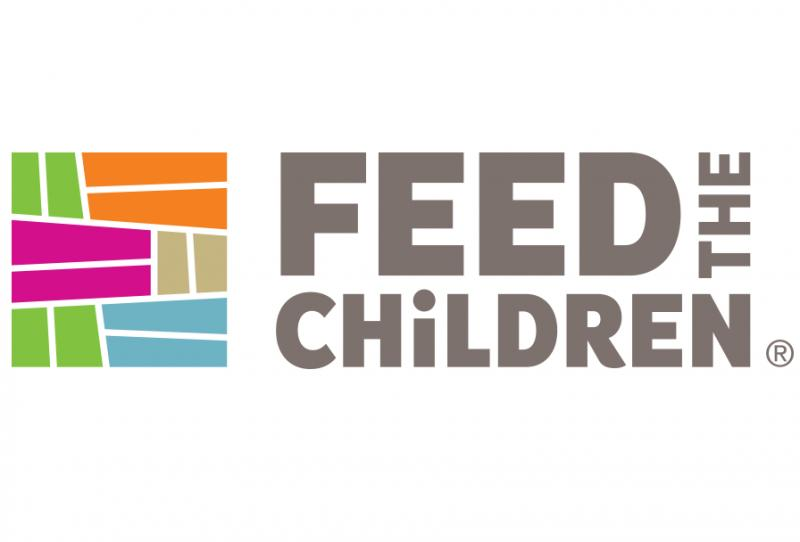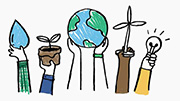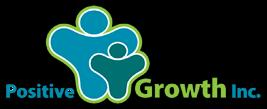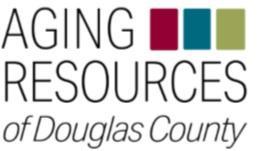Causes: Emergency Assistance, Human Services, International, International Development, International Relief
Mission: Providing hope and resources for those without life's essentials.
Results: In 2021, through collaboration with our family of corporate and community partners, donors and volunteers, our work benefited more than 10 million people globally. In the United States, we distributed more than 91.5 million pounds of food and essential items to children and families who needed them. Our total outreach benefited more than eight million people in the communities where they live including areas struck by natural disasters last year such as hurricanes, floods, tornadoes and wildfires where we distributed millions of pounds of food and supplies. Internationally, our work reached more than two million people throughout the 8 countries where we are active as we provided more than 35 million meals. To support education initiatives, we provided more than $2.8 million worth of teaching supplies across the U. S. as well as books valued at $4 million that could benefit approximately 803,500 students.
Target demographics: Providing hope and resources for those without life's essentials.
Geographic areas served: All 50 states and 8 countries internationally
Programs: Food & Nutrition SecurityThe World Health Organization considers food and nutrition security a top priority and basic human right. Without adequate food and nutrition, children are unable to reach their full development potential both physically and mentally. Nutrition deficiencies affect more than 2 billion people worldwide, causing a reduction in learning capabilities and livelihood development (WHO). Disease prevention and treatment, as well as ensuring proper nutrition, is critical to ensure adequate cognitive and physical development. Health & HygieneClean water and sanitation intervention for children and their families is crucial to prevent common illness. A child with a compromised immune system is at greater risk of poor nutritional status and developmental outcomes. Nearly 15,000 children under the age of 5 die every day due to preventable and treatable diseases such as pneumonia, diarrhea, and malaria, with children under one month accounting for 46% of these deaths (WHO). Proper health for the child during the first 1,000 days —from conception to 2 years — is the most critical window of time to ensure the child develops to his or her potential, thus helping to break the cycle of poverty. When children are guaranteed proper health and sanitation measures, they are able to prevent and fight disease, which enables them to develop both physically and mentally into strong children who become contributing members of their communities. EducationWhen it comes to education, every additional day, week, month, and year a child is in school is impactful and should be encouraged and valued. Through quality education, children gain essential knowledge, skills, and mindsets to become change agents within their own lives, throughout their communities, and out into the world. For girls, quality education remains one of the smartest investments and bring tremendous positive return for income and economic growth. Yet 132 million girls worldwide are out of school (2016) This includes 34.3 million girls of primary school age, 30 million girls of lower secondary school age, and 67.4 million girls of upper secondary school age. (UNESCO). Economic EmpowermentPoverty has many roots — government policies, gaps in education, disabilities, discrimination — but, by its definition it means living on $1.90 a day or less. The World Bank has identified fostering income growth in the bottom 40% of every country as one of its two main goals in the effort to end poverty. (World Bank). “Extreme poverty disproportionately affects children - 387 million, or 19.5% of the world’s children, live in extreme poverty (UNICEF). " So many of their families are caught in a cycle: living in poverty brings hunger, and living with hunger prolongs poverty. If people find better ways to earn a living, they have a better chance of moving out of poverty. A simple opportunity for parents to earn a living brings immediate relief, gives a sustaining sense of pride, and can ultimately stop the cycle of poverty for their kids. Economic empowerment can serve as an essential weapon against hunger.
Mission: Providing hope and resources for those without life's essentials.
Results: In 2021, through collaboration with our family of corporate and community partners, donors and volunteers, our work benefited more than 10 million people globally. In the United States, we distributed more than 91.5 million pounds of food and essential items to children and families who needed them. Our total outreach benefited more than eight million people in the communities where they live including areas struck by natural disasters last year such as hurricanes, floods, tornadoes and wildfires where we distributed millions of pounds of food and supplies. Internationally, our work reached more than two million people throughout the 8 countries where we are active as we provided more than 35 million meals. To support education initiatives, we provided more than $2.8 million worth of teaching supplies across the U. S. as well as books valued at $4 million that could benefit approximately 803,500 students.
Target demographics: Providing hope and resources for those without life's essentials.
Geographic areas served: All 50 states and 8 countries internationally
Programs: Food & Nutrition SecurityThe World Health Organization considers food and nutrition security a top priority and basic human right. Without adequate food and nutrition, children are unable to reach their full development potential both physically and mentally. Nutrition deficiencies affect more than 2 billion people worldwide, causing a reduction in learning capabilities and livelihood development (WHO). Disease prevention and treatment, as well as ensuring proper nutrition, is critical to ensure adequate cognitive and physical development. Health & HygieneClean water and sanitation intervention for children and their families is crucial to prevent common illness. A child with a compromised immune system is at greater risk of poor nutritional status and developmental outcomes. Nearly 15,000 children under the age of 5 die every day due to preventable and treatable diseases such as pneumonia, diarrhea, and malaria, with children under one month accounting for 46% of these deaths (WHO). Proper health for the child during the first 1,000 days —from conception to 2 years — is the most critical window of time to ensure the child develops to his or her potential, thus helping to break the cycle of poverty. When children are guaranteed proper health and sanitation measures, they are able to prevent and fight disease, which enables them to develop both physically and mentally into strong children who become contributing members of their communities. EducationWhen it comes to education, every additional day, week, month, and year a child is in school is impactful and should be encouraged and valued. Through quality education, children gain essential knowledge, skills, and mindsets to become change agents within their own lives, throughout their communities, and out into the world. For girls, quality education remains one of the smartest investments and bring tremendous positive return for income and economic growth. Yet 132 million girls worldwide are out of school (2016) This includes 34.3 million girls of primary school age, 30 million girls of lower secondary school age, and 67.4 million girls of upper secondary school age. (UNESCO). Economic EmpowermentPoverty has many roots — government policies, gaps in education, disabilities, discrimination — but, by its definition it means living on $1.90 a day or less. The World Bank has identified fostering income growth in the bottom 40% of every country as one of its two main goals in the effort to end poverty. (World Bank). “Extreme poverty disproportionately affects children - 387 million, or 19.5% of the world’s children, live in extreme poverty (UNICEF). " So many of their families are caught in a cycle: living in poverty brings hunger, and living with hunger prolongs poverty. If people find better ways to earn a living, they have a better chance of moving out of poverty. A simple opportunity for parents to earn a living brings immediate relief, gives a sustaining sense of pride, and can ultimately stop the cycle of poverty for their kids. Economic empowerment can serve as an essential weapon against hunger.
info@feedthechildren.org
PO Box 36, Oklahoma City, OK 73101
800-627-4556

Human Services
Oklahoma City















































